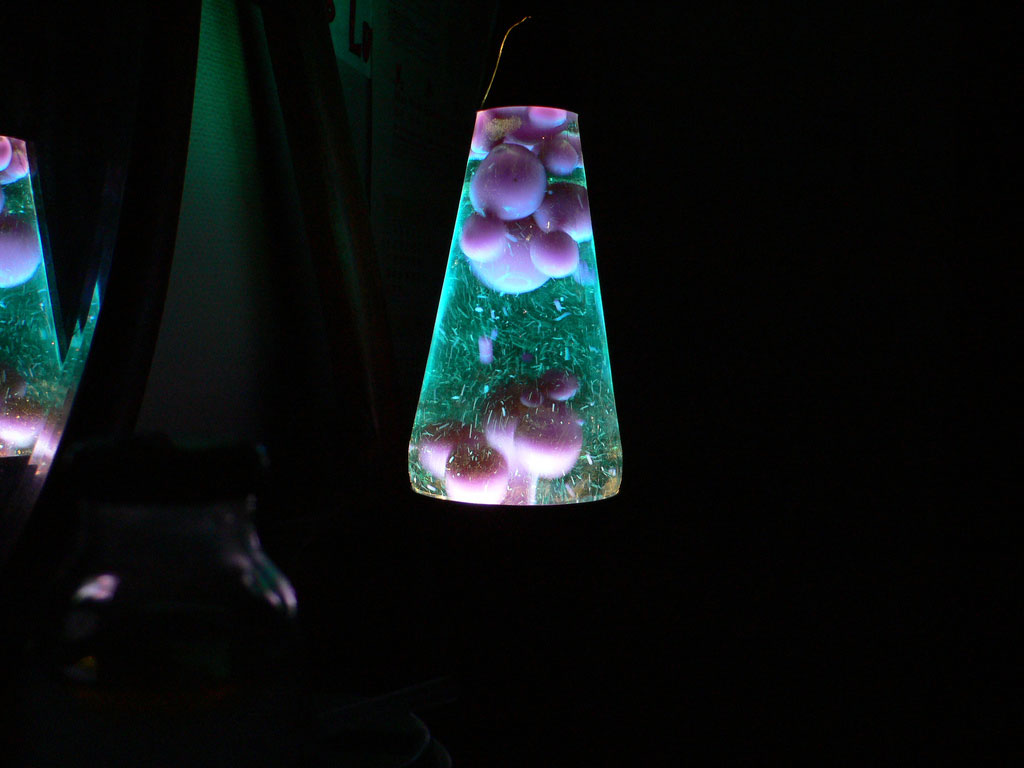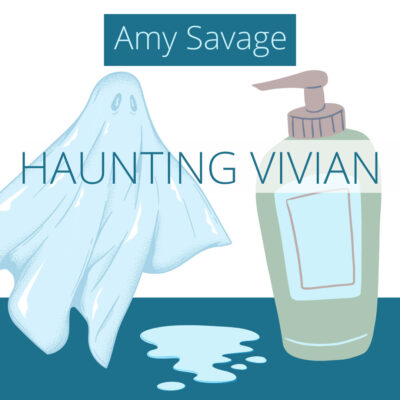
Sara Baker
MAIL-ORDER BRIDE
Three women are swimming in a pool. It is a large pool surrounded by trees. Sunlight filters through feathery pecan leaves; twigs and bugs from the night’s rain litter the pool. The women with their kickboards push through them, heedless. To one side, teenagers explode from the water, spiking a ball over a volleyball net with raucous shouts. On the other side, shrieking children toss balls and hit each other with sherbet-colored Styrofoam noodles. In the middle of the chaos are the lap lanes, where the women find refuge from their children, where they can talk in peace.
The youngest one, Amy, in her twenties, is recovering from a breakup. “Tell me there are good men; I don’t want to be bitter,” she says to the other two, one in her late thirties, the other in her late forties, both long married.
“Oh, sure there are,” says the middle woman, Rosa, “although my husband says most men are pigs.” The word comes out peegs. Rosa is Brazilian, and although she has lived in America for twenty years, her English still rises and falls with unexpected pitches. Kristin, the oldest, says nothing.
“Great, I’m fucked,” says Amy. They approach the wall, turn lazily, push off and kick, their feet leaving three small white trails of frothy bubbles.
From their view they can see everyone: the tanned, toned beauty flirting with the lifeguard, flipping her honey hair over a sleek shoulder; the tattooed young mother chasing her toddler; the pale, lumpy high-school girl hiding behind her sunglasses, pretending not to watch the volleyball game.
“Look,” says Rosa, “There’s Mark with his new bride.”
Mark and his new bride saunter past, seemingly unaware of the women in the water. He is tall, with curly brown hair beginning to recede, regular features, and deep blue eyes. Just a bit past it, thinks Kristin. His bride is thin, of indeterminable age, her bright red hair cut in a severe bob, a style not currently seen in the pool set. Despite her slightness, she stands out.
The swimmers come to the edge and turn in unison.
“I hope he’s nice to her,” Amy says when they are in the middle of the pool.
“Why wouldn’t he be?” Kristin asks.
The other two exchange glances.
Kristin, looking at the now receding back of the man, remembers something. “Hey, wasn’t he with Cecilia for a while?”
“And many others while he was with her,” Amy smirks. “I was a candidate at one time.” She wrinkles her cute nose.
Rosa says, in her peculiar, accented locution, “He’s a hunter!”
“Really!” They laugh at the strange but apt description.
Kristin now feels very much out of the loop. She used to know these things. “So, why wouldn’t he be nice to her?” she asks, looking at the bony back of the woman. There is something painfully obsequious in the way the woman curves towards Mark. Meanwhile, a boy of about ten, dark and feral-looking, tugs angrily on her hand.
“Mark has a little trouble with drinking,” Amy reports authoritatively. “I’ve seen him with more than a few scotches in him. Makes him mean.”
They get to the wall, turn, push off. A few white fluffy clouds float overhead. There is the smell of chlorine, and under that, mold.
“Where did he get her, anyway?” asks Rosa, squinting at the couple.
“I heard she’s Slavic or something,” Amy says. “Romanian, Hungarian, Czech, something like that.”
“I heard there were green card problems,” says Rosa, who has had green card problems of her own.
All three pairs of eyes contemplate the couple, who have now settled into some lounge chairs in the shade. Kristin can see that Mark, although he moves confidently, has the pallor and gut, the sloping shoulders, of someone soft from drink. Looking at the red-haired woman, now arguing with the boy, she tries to imagine her in her home country. Kristin’s impressions of Eastern Europe are grainy and bleak like the films she’s seen, the stories she’s read, but they are also compelling. Images come to her of Cold War skirmishes in old cities with narrow streets, of Orthodox Jews in dark coats scurrying to prayer, of sad-faced mosaic Madonnas glinting in Russian churches, of dancing Gypsy women in bright skirts. She thinks of it as a place of old rivalries and new ideologies, of betrayals and alliances, a place dense with a history she could never hope to understand. She wonders how this thin, hennaed woman will fare under the guileless American sky. She wonders what accident of history brought her here, and whether she will one day swim and gossip in the lap lanes.
But she doesn’t say any of this to her companions. “A mail-order bride?” she quips.
They laugh again, and their laughter is languorous, like their slow kicks. The breeze shifts and Kristin can smell the rich coconut scent of suntan lotion, the buttery popcorn the children love. The lifeguards are playing Led Zeppelin now—what is the title? Something about rain. She tries, but she can’t come up with it. For a moment she gives herself over to the music, to the sweet, carefree vigor of it. For a moment she is nineteen again.
“I know I have my issues,” Amy is saying, “but he’s really fucked up.”
Her whining is beginning to grate on Kristin’s nerves. “I don’t know anyone who isn’t,” she says. The drama of Amy and Tom is in its second summer.
Amy doesn’t respond, she’s in full throttle now, the distraction of Mark and his bride forgotten. “But it just seems untidy to expect me to be a friend, now, when he’s the one who has a problem with commitment. I have my issues, but he needs to take responsibility for his. He’s texting me five times a day. Give me some space, I told him. God, I hate having to be a hard-ass with the guy I. . . .” Her eyes shine with angry tears. “I hope his thumbs fall off!” Amy juts her chin out defiantly.
Kristin glances over to spot her son. At twelve and a good swimmer, she doesn’t need to worry about him, but it is force of habit. Just as she finds him in the knot of children, he and Rosa’s daughter erupt from the water, grabbing for a green tennis ball. The two children come together as if in a dance, the silvery water rippling around them in overlapping circles. They hang in mid-air, grinning, and then they separate. Kristin turns her head back to her friends.
Rosa is talking about a book she has read about men and women. “They really are different from us. Their brains are different. When a woman says, ‘I need to talk,’ they are like dogs who just hear, blah, blah, blah. What they think is, ‘I’ve done something wrong and you’re pissed.’”
“So what are we supposed to do?!” cries Amy, plaintively, giving a vehement kick. “I mean, we’ve got to be able to talk to them, right? Or do we just give up?” She looks at Kristin as if she might have an answer, her lovely face tan and flushed, her large brown eyes wide. They come to the wall, turn, push off, the water in front of the boards gathering like fine silk. Beseechingly, she asks Kristin, “You’ve been married for a long time. You guys are OK, right?”
Kristin hesitates, not knowing how to answer. Yesterday she would have said yes, but today she feels dispersed, watery, at sea.
“Marriage. Ees. Work,” Rosa says, arching an eyebrow at Kristin.
How many years have Kristin and Rosa taken turns airing their marital grievances? And yet she can’t remember now what she was angry about then.
Kristin is beginning to feel cold in the water, her muscles stiffening. The pace is too slow to keep her warm. Amy has not seemed to notice Kristin’s lack of response, and now she and Rosa are discussing how many more laps they have to do, and when they will have time to work out at the gym, what machines they use, how great it feels. The sun glints metallically off the water. Everywhere Kristin looks, there are healthy whole bodies in motion. She feels suddenly old.
Noticing Kristin’s silence now, Amy asks, “What about you, Kristin?” and Rosa adds, “How’s your pain today?”
“I’m OK. I think I’m going to do some freestyle when we get to the end of this lane,” she says, as glad now to be out of the conversation as she had been to be in it. She welcomes being underwater, her ears stopped.
She finds her rhythm, arm over arm, her head turning every other breath. As she turns her head out of the water, her eyes seek her son again, and find him in a throng of laughing, jumping, sun-burned children. She holds the vision of them in her mind’s eye even as she is back underwater. She kicks strongly, accelerating, enjoying the sensation of being propelled through the water, enjoying the stretch of her side ribs as she scoops the water, pushes it behind her, feeling for the moment only her strength, not her pain. The water rocks her, the spangles of underwater light soothe her, like the light cast by a lava lamp.
The lava lamp! She hasn’t thought of it in years! She sees it on her cousin’s shelf, can almost reach out and touch it. How it had fascinated her at twelve, the age her son is now. That summer. She had forgotten it, but here it is again—the lamp, as exotic as any Aladdin’s lamp, its purple globs throwing fantastic shadows on the wall, Abbey Road on the turntable, the acrid burnt smell that clung to her older cousin’s Indian cotton quilt, the trashy novels she filched from Tina’s room. She hadn’t understood exactly what was happening in those books full of ripped bodices and black leather and corsets, with words like musky and throbbing, but she had plowed through them, her heart beating as if she had a fever, saliva gathering in her mouth. Terrified of being found out, she’d gone to the far corner of the garden, sat for hours on a bed of pine needles, unaware of the tiny cones pressing into her thighs. The books had to do with the mysterious way adults acted, with the exciting secrets they kept. Funny to think now of how little she knew then, and how much children know now.
That summer! How could she have forgotten it? The summer she had cast off the slumber of childhood, and awakened to herself, mind and body. Learning to dive, she had been avid for the feeling of her body flying through air, stretching her arms wide as if to gather in the sky, then, at just the right point, her body contracted, folding and lengthening into a slender spear, splitting the water cleanly. She had prided herself on her perfect, splashless entry, and practiced it over and over until her aunt forbade her to do any more, making her come into the house to change into dry clothes. How reluctantly she’d left the pool, looking back at it as she made her slow progress to the house.
She had been awkward in her twelve-year-old body on land, but in air and water, never. How she had dived and swum and slept then, as if there was no trick to it at all, her unquestioned birthright. Now she never dives and barely sleeps. Can it be that she is on the other side of all that now? It seems to have gone so fast, the past years, the best years. She feels as unsure now of what lies ahead as she did then.
She turns and strikes out again. This, at least, has not changed. The swimming eases something in her chest, a wordless weight, and she wants to go on and on, but she knows she had better stop or she will be stiff and sore the next day. She slows, enjoying the last few strokes. She hears her friends’ voices, their words indecipherable under the water, and then she sees her husband’s face again, briefly, just before he turned away from her last night in bed. What happened? Her stomach flips, even though she is stationary now, hanging on to the ladder, catching her breath before hoisting herself out.
Instead of her usual easy embrace, she’d bit his tongue teasingly, stroking his buttocks with her fingernails, then rolled away from him, wanting him to meet her challenge, to take her, to play. She’d felt a powerful urge for something darker, more exotic than their usual fare. Each time he reached for her, she pushed him away, wanting more than anything for him to pin her on the bed, immobilize her.
But instead, he’d gotten a confused, hurt look in his eyes. Had he taken her attempts at playfulness, her minor challenge of him, her deviating from their well-worn routine, as some kind of betrayal?
Was that it? Or had he picked up on an aggression she could barely own? She had lain there feeling suddenly impatient, wanting some unnameable change between them, and now it seems to her cruel and unloving to have wanted it. He is aging too. But she resents him misunderstanding her, even as she loathes herself for causing him pain.
They have always had this between them, their bodies able to communicate when nothing else could. If this fails them, what will they have?
The sun seems suddenly too strong, too glaring. She climbs out, shaking her head like a dog to clear her ears. It’s just weather, she tells herself, it will pass. But she sees again his turned back, his arms over his head, and it rips her right down the middle, knowing his capacity to turn inward, this cruelty of his he sees as self-protection.
Her land gait unsteady, hand shielding herself against the sun, she picks her way towards her child, passing by Mark and his mail-order bride. She notices how the woman, on closer inspection, has a pinched wary look around her eyes, how she keeps touching the man’s knees possessively, talking to him with little dips of her head, and how Mark sits, relaxed, letting her attend to him, legs spread in a contented, lord-of-the manor fashion, his doughy skin already sunburned, his eyes focused straight ahead. Ah well, she thinks, good luck to you both. And she means it.

Sara Baker has published fiction in Confrontation, H.O.W. Journal, The China Grove Journal, The Examined Life, The New Quarterly, and other venues. Her poetry has been published or is forthcoming in The Apalachee Review, the 2011 Anthology of the Hippocrates Prize for Poetry and Medicine, The Healing Muse, Ars Medica, and Stone, River, Sky: An Anthology of Georgia Poems. She has an M.A. in English from Boston College. After fifteen years of teaching at the university level, she developed a writing workshop for cancer patients and found her true calling. Currently she is developing a program for the Athens-Clarke county jail. You can read her thoughts about writing and healing at Word Medicine, www.saratbaker.wordpress.com.
Image credit:Nelson Pavlosky on Flickr
Read more from Cleaver Magazine’s Issue #11.



